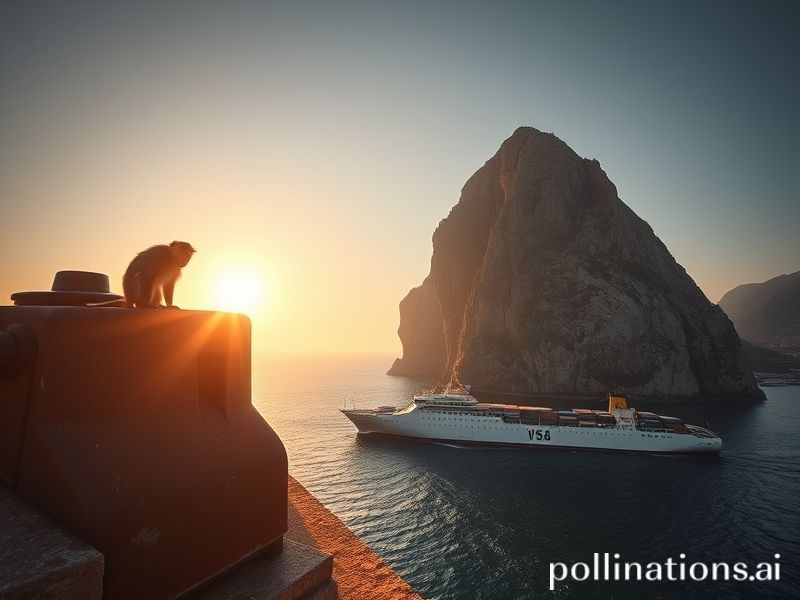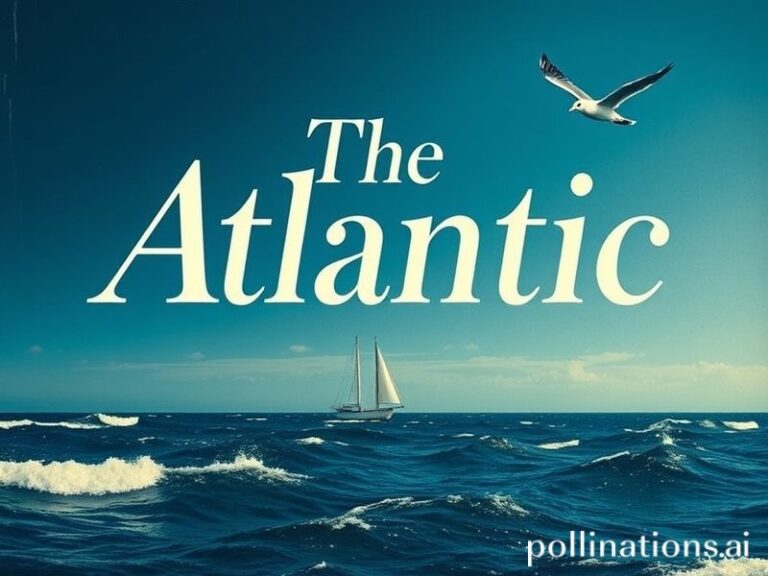Gibraltar: The 2.6-Square-Mile Rock the World Can’t Stop Arguing Over
Gibraltar – A Tiny Rock the World Can’t Stop Fighting Over
By Dave’s Locker International Desk
From the Strait’s southern shore you can see the Rock of Gibraltar doing what it has done for three millennia: glowering at Morocco like an over-tattooed bouncer who suspects the next boat might be carrying contraband couscous. At 2.6 square miles, the place is smaller than most music festivals, yet it has triggered more diplomatic migraines than climate change and crypto regulation combined. If geopolitics were a pub quiz, Gibraltar would be the trick question nobody gets right without spilling their drink.
The British insist it’s theirs because the Treaty of Utrecht (1713) says so, a document written when powdered wigs were cutting-edge fashion and syphilis was considered a mild inconvenience. Spain insists the treaty is a historical typo; the UN lists the territory as “non-self-governing,” which is international bureaucratese for “nobody wants to open this can of worms.” The Gibraltarians themselves—31,000 souls who speak English, Spanish, and fluent tax-optimization—keep voting 99 percent to stay British. One suspects the margin would shrink if London ever tried to levy UK council tax on a penthouse overlooking the marina.
Global significance? Start with shipping. Roughly one-quarter of the world’s maritime trade squeezes past the Rock, including oil from the Gulf bound for the US East Coast and Chinese-made plastic pumpkins headed back to Europe in a cargo loop that would make Dante dizzy. The Strait is so narrow that a moderately determined super-tanker could block it with the nautical equivalent of parallel-parking. Insurance syndicates at Lloyd’s of London have quietly priced that scenario into every policy since 1956, which is why your car insurance is indirectly subsidizing Spanish naval patrol boats.
Then there is tax. Gibraltar is what happens when a British accounting firm discovers sunshine. An estimated 60,000 offshore companies are registered there—roughly two corporations for every resident cat. The EU spent years calling it a money-laundering theme park, conveniently ignoring that Luxembourg and Dublin have matching rides. Post-Brexit, Brussels is threatening visa requirements on Gibraltarians, a move akin to banning penguins from the Sahara: technically possible, mostly spite.
The military angle never really left. During the Cold War, NATO stored enough nukes inside the Rock to turn Andalucía into a sunbed. Today the base hosts listening posts that vacuum up North African phone traffic, ensuring MI6 analysts stay fluent in TikTok memes and terrorist karaoke. Washington keeps a rotating squadron of destroyers nearby; Beijing has started docking spy trawlers “for repairs.” Somewhere in the Mediterranean, Poseidon checks his calendar and sighs.
Covid produced the sort of diplomatic farce only 2020 could script. Gibraltar vaccinated 115 percent of its population, a statistical miracle achieved by jabbing Spanish day-workers twice. Madrid screamed “vaccine tourism,” forgetting that Spanish pensioners had been popping over for cut-price gin since Franco was a cadet. When the border closed, monkeys from the Upper Rock ventured into town, breaking into hairdressers and learning to vape. The apes are still there, running a mildly successful Instagram account with more followers than the European Parliament.
And so the world spins, but the Rock does not. Climate change may drown the Maldives and make Siberia beachfront, yet Gibraltar will still be negotiating sovereignty as the last glacier melts. Future archaeologists will chip away at its tunnels and find layers of Phoenician coins, Spanish doubloons, British pounds, and discarded USB drives full of NFTs. They will conclude, correctly, that humans spent centuries fighting over a limestone pimple because nobody wanted to be the first to admit the view wasn’t worth the bill.
Conclusion: Gibraltar is the Marie Kondo of geopolitics—tiny, oddly satisfying to contemplate, and stubbornly refusing to spark joy for anyone who actually owns it. The lesson for the wider world is simple: if 2.6 square miles can generate this much paperwork, imagine the bureaucratic black hole awaiting us when we finally start mining the moon. Until then, the Rock endures, a sunburned monument to mankind’s talent for turning molehills into mutually assured litigation.







